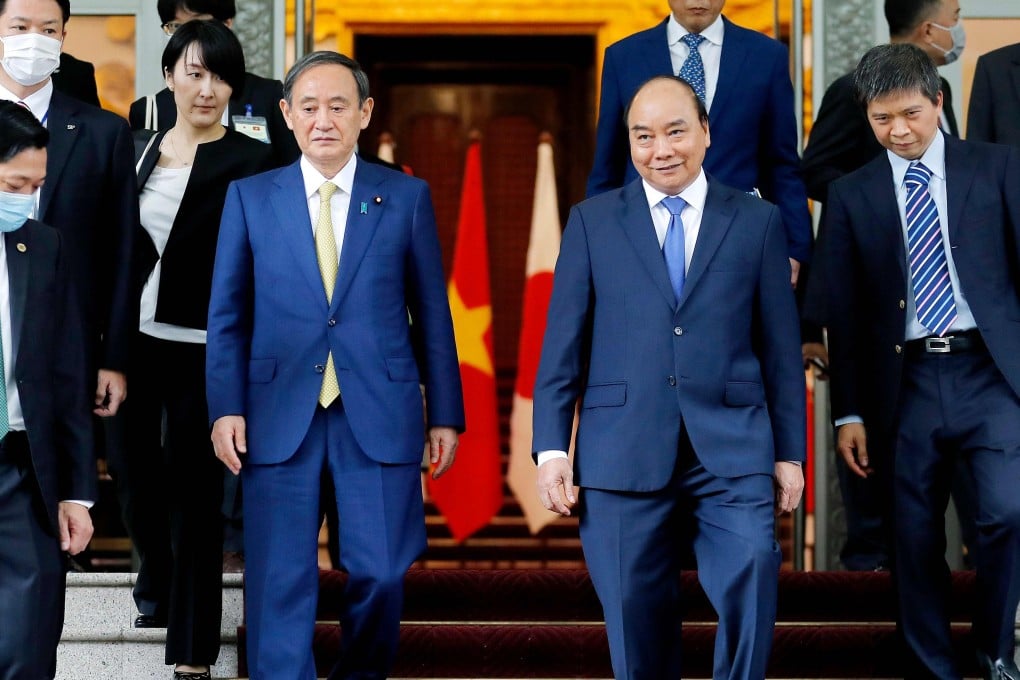Japan, Vietnam to step up defence and economic ties amid China’s growing influence
- Prime Ministers Suga and Phuc have agreed in principle on a pact that would see Tokyo export arms and military technology to Hanoi
- The agreement is seen as part of Japan’s attempts to counter Beijing’s assertiveness in the South China Sea, while Vietnam is also ready to support Japanese investment

Suga, who is on his first overseas trip since becoming prime minister last month, called Vietnam a linchpin in efforts to realise a “free and open Indo-Pacific” and vowed Japan’s “continued contribution to peace and prosperity in the region”.
Following a one-hour meeting with Phuc, Suga said the countries had agreed in principle on a defence pact, though details were not immediately available.
Japan has been looking to boost its sales of advanced military technology – including the likes of amphibious assault vehicles, underwater drones, and minehunting technology – since its 2014 lifting of a self-imposed ban on exporting weapons systems. Besides Vietnam, Japan has also been in discussions with Thailand and Indonesia over arms sales.
Analysts say the security agreement is also part of Japan’s attempts to stand up to China in the South China Sea, where Beijing is embroiled in territorial disputes with Southeast Asian nations including Vietnam, Malaysia and the Philippines.
The equipment, likely including patrol planes and radar, would help improve Vietnam’s surveillance capabilities. Hanoi’s claims in the disputed waterway include the Spratly Islands, where China is building up a military presence.